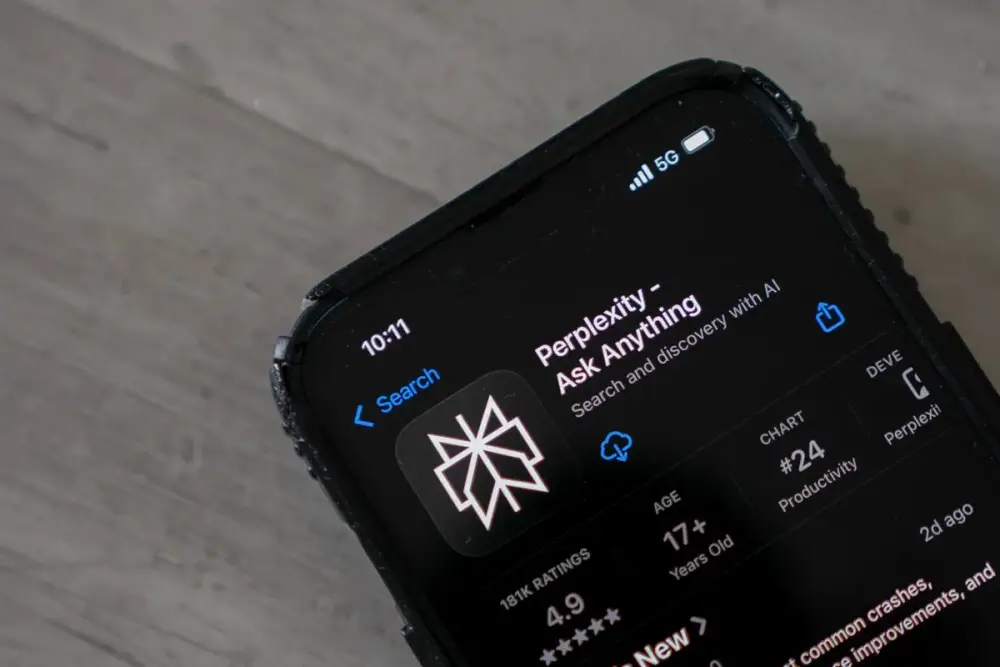
Perplexity ra mắt trình duyệt AI Comet, đặt cược vào tương lai trình duyệt tích hợp AI
-
Perplexity – công ty khởi nghiệp AI tìm kiếm – đang phát triển trình duyệt AI có tên Comet, dự kiến phát hành rộng rãi trong vài tháng tới, hiện chỉ có 1.200 người dùng thử nghiệm.
-
Comet có giao diện giống trình duyệt truyền thống nhưng tích hợp trợ lý AI bên cạnh, có thể duyệt tab, trích xuất dữ liệu và gửi email kết quả, như thống kê 780 triệu truy vấn/tháng của Perplexity.
-
CEO Aravind Srinivas mô tả Comet như "tầng chính xác" của AI, nơi trình duyệt và AI sống cùng người dùng, hướng đến trải nghiệm cá nhân hóa hoàn toàn.
-
Không chỉ Perplexity, Google tích hợp Gemini AI vào Chrome, Opera và The Browser Company cũng đẩy mạnh tính năng AI. OpenAI đang cân nhắc phát triển trình duyệt riêng.
-
Thị trường trình duyệt đang đứng trước thời điểm bất ổn khi Bộ Tư pháp Mỹ đề xuất buộc Google bán Chrome vì độc quyền tìm kiếm. Chrome có thể trị giá tới 20 tỷ USD.
-
Perplexity và OpenAI bày tỏ mong muốn mua lại Chrome nếu Google buộc phải bán, dù OpenAI có lợi thế tài chính lớn hơn (định giá 300 tỷ USD so với 14 tỷ USD của Perplexity).
-
Perplexity cũng học theo chiến lược của Google bằng cách thương lượng với các hãng điện thoại như Samsung và Motorola để tích hợp trình duyệt hoặc công cụ tìm kiếm AI vào thiết bị mặc định.
-
Tuy nhiên, hợp đồng giữa Google và Motorola đã chặn Perplexity trở thành trợ lý mặc định. CEO Srinivas cáo buộc Google can thiệp sau hậu trường để phá vỡ thỏa thuận.
-
Trong khi đó, Perplexity tiếp tục gây ấn tượng với AI tìm kiếm thời gian thực và đóng gói sản phẩm nhanh, giúp hãng chiếm lợi thế sớm so với nhiều đối thủ.
-
Dù vậy, việc thuyết phục người dùng chuyển sang một trình duyệt AI mới vẫn là thách thức lớn nhất trong việc thay đổi thói quen Internet tồn tại từ hàng thập kỷ.
📌 Perplexity đặt cược vào Comet – trình duyệt AI tích hợp trợ lý thời gian thực – để định hình lại cách con người dùng Internet. Với 780 triệu truy vấn/tháng, thương lượng với Samsung và tham vọng cạnh tranh Chrome trị giá 20 tỷ USD, Perplexity đang khai hỏa cuộc chiến trình duyệt AI với Google, OpenAI và các "ông lớn" công nghệ khác.
https://www.bloomberg.com/news/newsletters/2025-06-06/perplexity-google-bet-web-browsers-are-a-new-frontier-for-ai
Perplexity, Google Bet Web Browsers Are a New Frontier for AI
• Microsoft CEO says OpenAI alliance changing but remains strong
• Tax bill’s bid to ban new AI rules faces bipartisan blowback
A new web browser
But Perplexity is not the only firm taking a fresh look at web browsers. Opera and The Browser Company are both integrating more AI features into their browsers. Google is bringing its Gemini AI assistant to Chrome to let users ask questions while browsing the web. And OpenAI has mulled building a browser, according to The Information.
Google declined to comment.
Human quote of the week
Thảo luận
Follow Us
Tin phổ biến



